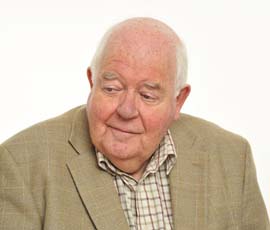Norway visit will show life outside EU

I was last in Norway about six years ago. It was a fleeting visit at the end of a farm study tour of the Baltic from St Petersburg in Russia, through Finland, then Sweden and ending in Oslo.
We didn’t see enough of Norway’s farming or its countryside, nor did we have time to take in the coast line and its fiords. I resolved to correct that omission as soon as possible and next summer aim to do just that.
The plan is for the Farmers Weekly party to fly to Oslo at the end of May from their various local airports in the UK, then, having stayed overnight in the capital, to fly north to Kirkenes, near the Russian border. There we’ll board a steamer – part of the Hurtigruten fleet – that sails south to deliver supplies and post to the otherwise inaccessible villages along the west coast.
It’s not as small a ship as you might imagine – it has 475 luxury berths for cruising passengers – but it is small enough to sail up the fiords. Passengers are able to visit these hamlets while the ship loads and unloads freight and in some cases to take coaches overland to the next port of call. We’ll see the farming along these isolated roads and marvel at the independence of those who live there.
After five days and nights on board, we’ll disembark at Bergen and travel around the southern tip of Norway by coach for five more days, calling at farms and the Yara fertiliser factory along the way. The tour ends where it begins – at Oslo from where we will fly home.
Norway is not, of course, in the EU and it will be instructive at this time of crisis across Europe to see how they are managing outside the Union.
One thing I remember being told on our last visit was that the country had invested most of its North Sea oil money and was using it to subsidise its agriculture and other small businesses to ensure they maintain their family structure and do not grow big and spoil the countryside. We’ll be able to judge if it’s working.
But before that, during mid-April, I’m planning another study tour to Holland. It’s a country I’ve visited many times but not for several years, so it will be an opportunity to catch up with what’s been happening there recently.
The main thing to remember about Holland is that it sits at the mouth of three rivers – the Rhine, the Meuse and the IJssel and this created historic opportunities for the Dutch to become the traders of Europe. It’s a tradition they’ve maintained and the quantity of goods, agricultural and otherwise, that pass through Rotterdam harbour as well as Schipol Airport these days must be seen to be believed.
Once again we’ll fly to Holland from local airports before starting our tour. As you might expect we shall be looking at the latest developments in dairying, including robot milkers, visiting a group of milk producers who contract out the feeding of their cows, looking at potatoes and a range of other arable production and studying Dutch expertise at market their produce. We also plan to visit the University of Wageningen to check on their most advanced research. And there will be visits to flower growing farms and to the internationally famous Floriade Show.
If you’d like details of either of the above tours please email me ASAP at whiterails@paston.co.uk
David Richardson farms about 400ha (1,000 acres) of arable land near Norwich in Norfolk in partnership with his wife, Lorna. His son, Rob, is farm manager.
